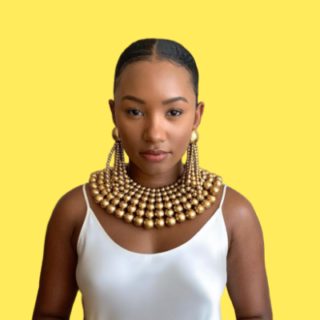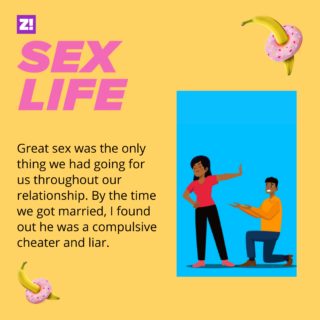Cobhams Asuquo is easily one of the most talented Nigerians alive. While he is more renowned for his work as a producer and songwriter, specifically his contribution to Asa’s eponymous debut, he is also an outstanding performer in his own right.
For those who might have forgotten, his viral cover of DJ Neptune, Mr Eazi and JoeBoy’s “Nobody” was a welcome reminder. Prior to that, he teamed up with Simi for the thought-provoking “We Plenti” — an impressive single off his upcoming sophomore album.
So, we decided to talk to the exceptional multihyphenate, discussing his past and his plans for the future.
What was your first proper introduction to music?
My first major memory is playing the twelve-bar blues (one of the most prominent chord progressions in popular music) as a kid. Then I began working with my church choir when I was just 9 years old.
Wow. Is there a reason you decided to kick off your career with producing instead of singing?
I don’t know if I actively picked producing over singing. For me, it was a matter of necessity at the time. Growing up, I used to constantly deconstruct music in my head, so discovering Musical Instrument Digital Interface (MIDI), which allowed me to recreate music in different ways, was really exciting for me. I immediately started to experiment.
So, I don’t think I was deliberate about picking production. It just kind of happened.
How did you feel about singing at the time?
I always wanted to be a singer. I always thought I’d make a career out of it actually, but I just didn’t like my voice as much as the voices of the people that inspired me. I wanted to sound like Michael Jackson, Bob Marley, Elvis Presley, Nat King Cole and a few others.
The fact that I didn’t is just one of the things that pushed me in the direction of production.
What was it like working on Asa’s debut album, Asa?
That collaboration was very organic. We started off as friends and we’d always made music together. We’d essentially done life together, and for me, that’s an essential part of collaborating. It’s always different when there’s a connection and a bunch of memories to pull from.
We’d done this for about 3 years and we’d worked on a lot of material. We actually had a whole other body of work that we created, but we never put that out. So, when the opportunity to create Asa came, we had a lot to pull from. We were in a tiny little suburb somewhere outside of Paris and we’d just go from our apartment to the studio. It was a great time.
One of the most remarkable things about that album is that a lot of the takes we ended up using were actually demo takes. They were just so soulful that by the time we got to actually recording them, we agreed that those versions were better. It was just an interesting period of writing and creating great music.
Following the success of that album, why did it take you so long to put out your own music?
Between 2007 and 2014, when I released my first single, “Ordinary People”, I worked with Omawumi and we put out some of her most acclaimed work, from “If You Ask Me” to “In The Music”. Around that time, I also worked with Timi Dakolo on his first album, Beautiful Noise. Then I collaborated with Banky W on songs like “Strong Ting”, “Yes/No” and a few others.
So, yeah, it was a period I spent stretching myself as a producer. It’s around this time I also started building confidence in my own voice. The experience helped me understand the importance of delivering my own message in my own way. I think that whole process actually took some time.
So what is your message?
I think mine is a message of hope. I started life out with the odds stacked against me — I was born blind in Nigeria in the ‘80s, and I didn’t have the requisite infrastructure to function in the space. My story could have turned out a lot differently. So, the message I chose to spread with my music and my life is that of possibility. It might not always seem that way, but it’s possible.
What’s it like helping others achieve their artistic vision?
It’s exciting for me. I feel a sense of responsibility to help uplift the standard of music in Nigeria and the world over, and I think that’s what working with other artists does. It also gives me the experience to help develop my own sound. I’ve been a part of a lot of artists’ journeys and that’s helped me define my own path more clearly.
I’m a producer transitioning into the artist space, and I’ve worked on a lot of different genres, so it was initially a bit difficult trying to find my own path. Over time, however, I’ve grown to understand the commercial value of music versus its artistic value. That’s helped me make more informed decisions as I craft my own specific sound.
What does transitioning into the artist space mean to you:
Primarily, it means I’m going to perform and sing more. I’m going to be sharing my story through great music. Whether or not I produce less, remains to be seen. That will be a matter of how I manage my schedule.
The most important thing is that people get to enjoy the goodness of Cobhams the artist, not just Cobhams the producer. I think people deserve that.
About your debut album, For You, that also took a bit of time to come out. Why?
I spent about 5 years working on that album. I was juggling that while working on projects with other artists. I wasn’t even sure I wanted to release it because, as a 100% Christain album, it was a departure from some of the stuff I was putting out around that time, like “Boosit” with Falz and “Do The Right Thing” with Bez.
I eventually got to a point where I decided it was divine design and it needed to come out. So, when I felt convinced and confident enough to share it with the world, I did. Another reason it took so long was because of how much went into it, from working with an orchestra to collaborating with musicians from different countries.
How do you feel about the project now, 3 years after its release?
I feel like it has done and continues to do what it was meant to do. In my opinion, music is a gift that you share with other people. I think the album was meant to come out and bless people, and I believe that it did. Now, I’m just excited about moving on to the next thing, and for me, that’s working on my sophomore album.
Due to its faith-based themes, For You was skewed towards a specific audience. With this new album, I’m broadening my sound and my perspective. I’m really reaching for the stars with this one and feeling very excited about it.
How would you describe your sound at this moment?
I feel like my sound is growing. I think that as a musician, you need to allow yourself to evolve and create music that is relevant to the times. You need to keep growing to get better. For me, “We Plenti” is stylistically very African. Our sound is taking centre stage in the world right now, and there hasn’t been a better time to be an African in music.
I’m really excited about that and I’m expressing it in my music. It’s authentically African. There are a lot of people who can create this type of music, but I feel like, as an African, it’s my heritage. I have the right and I can do it well. I think “We Plenti” is a testament to that. I can create African music just as well as I create music with any other kind of influence.
Who else would you like to collaborate with?
I’m collaborating with a number of artists in the afrobeats space. I really can’t say who yet, but the direction we are going with the album is really exciting.
How has the pandemic affected the way you make music?
I’ve had to learn new ways to function. I’m now collaborating with people without having them come to my studio, and it’s pretty exciting. Granted, I’m a big studio guy, but I’m not mad at remote work becoming the new normal. I’m currently collaborating with artists across 6 African countries.
Has it had a more cerebral effect on your approach?
The lockdown gave me a bit more time to be introspective, and when I’m in that headspace, I tend to create more. So, I’ve been able to create some things that I’m very proud of. I think I’ve also decided to approach music from a slightly more spiritual angle, in terms of just being quiet and listening. Listening for the sound and listening for inspiration.
You made a song about the pandemic. Why did you feel compelled to?
I’ve always talked about music as a tool for social influence; for sensitising people and spreading information. That’s part of what I like to do with my music and with “We Go Win”, that was the idea. It was a way to tell people how to keep themselves and their loved ones safe.
Is there a reason you haven’t done one of the lockdown’s biggest pastimes: a versus challenge?
I really don’t know why I haven’t done one. I’ve given it some thought, but I like things to happen organically. We never know. The period isn’t over, so something might come up. If it does happen, it’s going to be organic.
Who would you like to go up against?
I’d have to really think about my catalogue, but there are a few people, like Don Jazzy and TY Mix. I wouldn’t want to go up against people like Sarz or Masterkraft. Their production catalogues are just wild.
Let’s talk about your viral “Nobody” cover. What inspired that?
It’s a great song and people around the world have been rocking out to it, so I decided to join in on the fun. It was also an opportunity for me to show what I do when I’m in the studio: How ideas come to my head and how I flesh them out. “Nobody” was just the perfect canvas for me. It was fun to give a primarily afropop song a different perspective.
So, when can fans expect new singles from your sophomore album?
Expect songs to start coming out within the next couple of months. Obviously, the pandemic has taken a toll on the world, but we are resilient people. So, while I can’t give you a specific time, I can say that over the next couple of months, you’ll be hearing a lot more from me. Then at the most opportune time, the album will drop. I am really excited about it.




